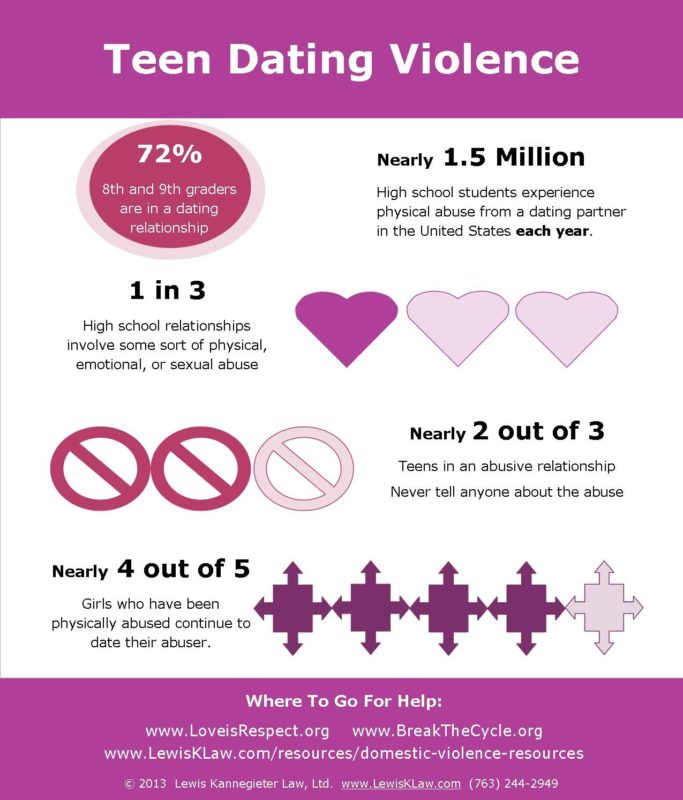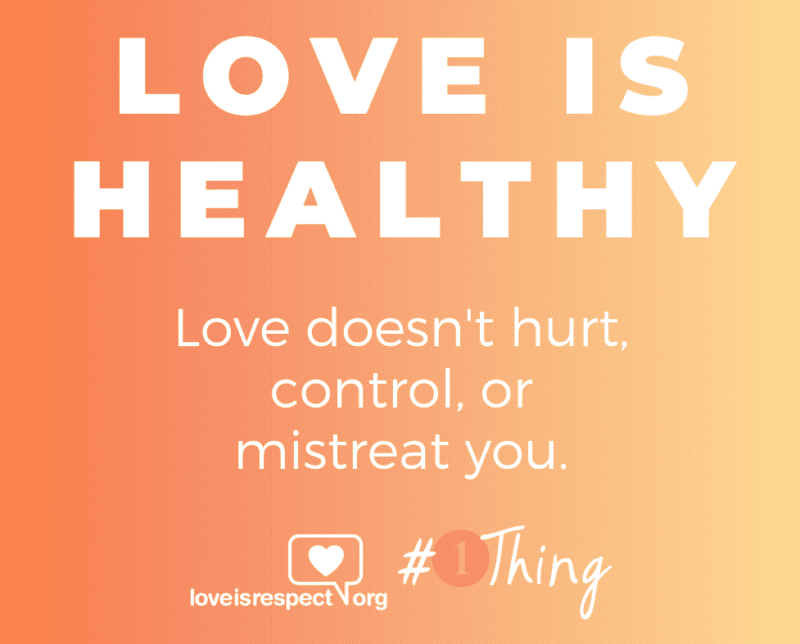5 Ways to Talk to Your Teen About Dating Violence

Pretty much everyone knows that February is home to Valentine’s Day and Black History Month, but did you know that it’s also Teen Dating Violence Awareness Month (TDVAM)? Here at Crisis Services of North Alabama, TDVAM provides the perfect opportunity to connect with our youth to talk about healthy relationships, dating violence, consent, and boundaries. Crisis Services of North Alabama offers prevention education opportunities to area youth-serving organizations to help empower teens to know the red flags that serve as warnings of unhealthy relationship behaviors as well as the green flags of healthy relationship behaviors. You can help the young people in your life understand that love should never hurt, but abuse and violence will.

Getting the Conversation Started
So, how can you as a parent talk to your teenager about the topic of dating violence? Here are a few basic guidelines you can follow.
- Educate yourself. This is a key step in talking to your teen about any topic. There is no shame in not having all the facts about teen dating violence immediately at hand. No one knows everything. Reading this article, and others like it proves that you are already taking this first step seriously. Be sure you allow yourself time to work through the information and make a plan on what, when, and how you want to talk with your teen about this topic. Educating yourself also sets a terrific model for your teen to follow. If they see you taking the topic seriously, they are more likely to do the same.
- Start by asking them what they think healthy behaviors and unhealthy behaviors are in relationships. This will help you get a good idea of what they know and what you need to talk more about or clarify on. It’s also a good way to break the ice around the topic without diving headfirst into the heavy stuff.
- Be as open and honest as possible with them when you talk. Teenagers appreciate honesty, especially when talking about a very important part of their life. Understandably, you will want to keep it age-appropriate. Younger teens may not be as prepared to talk in-depth about certain subjects as older teens would. Trust that you know how to best talk to your teen. Also, instill the confidence that they can come to you with questions at any time. And know that it is okay to say you don’t have the answer. It’s better for all involved to have the facts, even if it takes a little longer. Try to be willing to meet them where they are. If possible, relate to them using their interests such as TV shows, movies, music, and TikToks as launching points and teachable moments.
- Discuss the consequences of violence in relationships. Talk to them about consent, healthy boundaries, respect, and positive interactions in their friendships and romantic relationships. But don’t forget to have the hard talk about red flags and toxic or unhealthy behaviors as well. They need to hear a balance of both healthy and unhealthy in order to recognize the signs of both. Make sure they understand that their actions don’t just affect themselves and the person they are with, but anyone around them that is a consistent part of their own and their partner’s lives. Talk about the emotional, mental, and physical impact that violence and abuse can have on teens and families. You can also discuss the legal consequences of abuse and violence in relationships, especially with older teens who are approaching adulthood in the eyes of the law. Understanding the extent of how abuse may affect themselves and their peers can help them learn to stop dating violence before it starts.
- Take advantage of community resources! If you have questions before talking with your teen, or want to make sure they have all the options available to them when you do, do some searching for teen-based organizations or groups in your community. Having a space where they can gather with a group of peers that likely have the same questions and concerns as them will help them feel more confident about the topic of dating violence in general. Be available and supportive when they come to you. It’s possible you may also want to include trusted adults at school and in your community. This can help widen your teen’s support system and give them the confidence needed to ask the tough questions and challenge the status quo throughout school and life.

Warning Signs of Teen Dating Violence
There are also some key warning signs that your teen might be involved in an unhealthy relationship. Keep in mind that these are not definitive signs on their own, but things to watch for in combination in case you have concerns.
- Isolating from friends or family in favor of spending time with a partner.
- Constantly worried about upsetting or going against their partner.
- Consistently making excuses for their partner’s behavior or actions.
- Declining grades, missing school, or withdrawing from social situations and hobbies.
- Excessive texts, calls, or visits with their partner, to the point where it becomes an overwhelming priority.
Talking with your teenager, in general, can be stressful, but following the steps above can help you guide the conversation in a meaningful way and make a lasting impact. Dating violence and abuse affect at least 1 in every 3 teenagers, 1 in 4 women, and 1 in 7 men. Young people who experience violence in relationships are also more likely than other peers to engage in risky or unhealthy behaviors, such as using alcohol or drugs, unprotected/promiscuous sex, or engaging in violent behaviors towards themselves or others. For more facts about teen dating violence and relationship abuse, you can visit Futures Without Violence.
By talking with your teenager about dating violence on a regular basis, you are setting them up for a future where they are confident in knowing what is healthy or unhealthy in relationships. You are also doing your part to help prevent dating violence by stopping it in its tracks in your family, friends, and community.
If you or your teen is in crisis and needs to talk to someone about it, CSNA has a 24/7 HELPline at (256) 716-1000. Please don’t hesitate to reach out if you are in need of support.
 ABOUT THE AUTHOR: Bre Newell is the Sexual Assault Prevention Educator at Crisis Services of North Alabama. She has been involved with CSNA since early 2021. In her time there, she has facilitated many programs for adolescents and emerging adults, including Coaching Boys Into Men and Athletes as Leaders, as well as assisting with training of volunteers and interns. Her passion is helping people in the Huntsville community educate themselves on the consequences and impacts of sexual violence on individual, communal, and social levels. She holds a B.A. in Psychology from Athens State University. If interested in programs or resources, she can be contacted by email at [email protected] or at her office line (256) 705-6773.
ABOUT THE AUTHOR: Bre Newell is the Sexual Assault Prevention Educator at Crisis Services of North Alabama. She has been involved with CSNA since early 2021. In her time there, she has facilitated many programs for adolescents and emerging adults, including Coaching Boys Into Men and Athletes as Leaders, as well as assisting with training of volunteers and interns. Her passion is helping people in the Huntsville community educate themselves on the consequences and impacts of sexual violence on individual, communal, and social levels. She holds a B.A. in Psychology from Athens State University. If interested in programs or resources, she can be contacted by email at [email protected] or at her office line (256) 705-6773.
You Might Also Like…
As a hyper-local website focused on all aspects of parenting in and around Morgan County, and the Tennessee Valley, River City Mom occasionally asks local parents to submit their stories for publication. This is part of our continual effort to represent varied viewpoints and experiences on our site. However, these articles should not be seen as necessarily expressing the views of Rocket City Mom Media Group, LLC.





